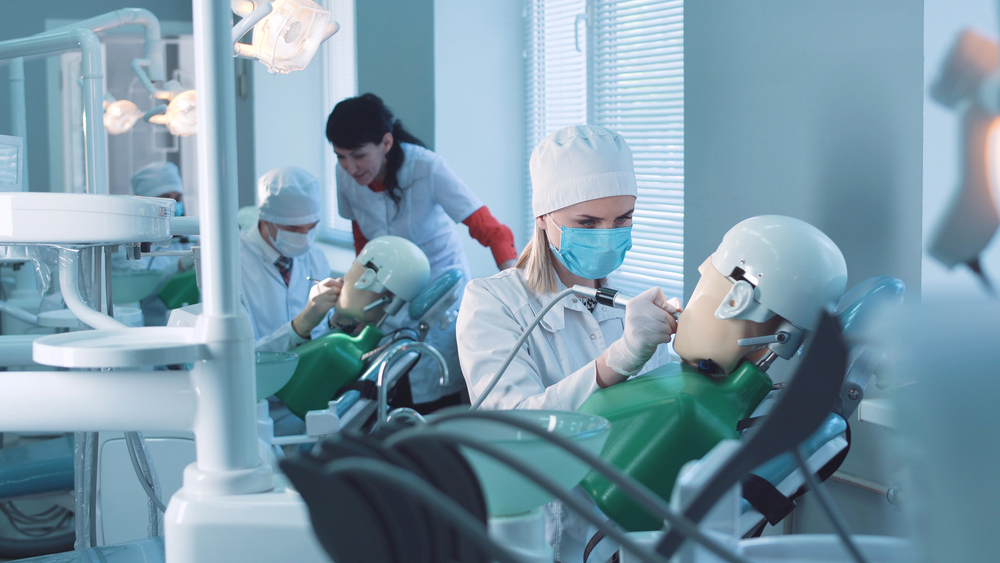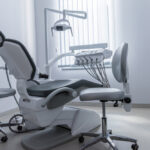The journey from dental education to clinical practice is a transformative one, shaping how dental professionals approach their roles in a constantly evolving field. As dentistry continues to advance, the education that future dentists receive is not just about mastering traditional techniques but also about preparing them to navigate the dynamic changes revolutionizing dentistry. This article explores how dental education is pivotal in shaping professional practice and the crucial role it plays in adapting to the rapid advancements in the field.
The Foundation of Dental Education
Dental education lays the groundwork for a career in dentistry, beginning with rigorous academic and clinical training. In the classroom, dental students acquire a deep understanding of dental sciences, including anatomy, pathology, pharmacology, and microbiology. This foundational knowledge is essential as it equips dental professionals with the critical thinking skills necessary to diagnose and treat a wide range of conditions effectively.
Clinical training further enhances this knowledge by offering hands-on experience. Dental students work with real patients under the supervision of experienced practitioners, allowing them to apply theoretical concepts in practical scenarios. This bridge between theory and practice is crucial, as it enables dental professionals to develop the skills needed for accurate diagnoses and successful treatments.
Adapting to Technological Advancements
One of the most significant ways dental education shapes professional practice is through its incorporation of new technologies. The field of dentistry is undergoing a technological revolution, with advancements such as digital imaging, CAD/CAM systems, and laser dentistry becoming increasingly prevalent. Modern dental programs are integrating these technologies into their curricula to ensure that future dental professionals are proficient in their use.
For instance, digital imaging techniques, such as cone-beam computed tomography (CBCT), provide detailed 3D images that enhance diagnostic accuracy. Dental schools are incorporating training on these technologies, allowing students to gain hands-on experience with tools that are now standard in many clinical settings. By familiarizing themselves with these innovations during their education, dental professionals are better prepared to integrate them into their practice, ultimately improving patient outcomes.
Emphasizing Evidence-Based Practice
Another critical aspect of dental education is the emphasis on evidence-based practice. This approach involves using the best available research evidence to make informed decisions about patient care. Dental programs are increasingly focusing on teaching students how to critically appraise research, interpret clinical evidence, and apply it to real-world scenarios.
Evidence-based practice is revolutionizing dentistry by ensuring that treatments and interventions are grounded in the latest scientific research. Dental professionals who are well-versed in this approach can provide care that is not only effective but also aligned with the latest advancements in the field. This emphasis on research and evidence helps bridge the gap between theoretical knowledge and clinical practice, ensuring that dental professionals are equipped to deliver the highest standard of care.
Fostering Lifelong Learning
Dental education does not end with graduation; rather, it marks the beginning of a lifelong learning journey. The field of dentistry is continuously evolving, with new research, techniques, and technologies emerging regularly. To stay current, dental professionals must engage in ongoing education and professional development.
Continuing education programs and workshops play a vital role in this ongoing learning process. They offer dental professionals opportunities to update their skills, learn about the latest advancements, and refine their practice. Many dental schools and professional organizations offer continuing education courses that cover a wide range of topics, from new treatment modalities to practice management strategies.
By fostering a culture of lifelong learning, dental education ensures that professionals are not only prepared for their initial entry into the field but also equipped to adapt to future changes. This commitment to continuous improvement is essential for maintaining the quality of care and staying at the forefront of the field.
Preparing for Multidisciplinary Collaboration
Modern dentistry often involves working in multidisciplinary teams, where dental professionals collaborate with other healthcare providers to address complex patient needs. Dental education is increasingly recognizing the importance of this collaborative approach and incorporating training that prepares students to work effectively in team settings.
Students are exposed to various aspects of healthcare beyond dentistry, such as working with medical professionals, dental hygienists, and dental assistants. This exposure helps them develop the communication and teamwork skills necessary for successful interdisciplinary collaboration. Such training is crucial as dental professionals often need to coordinate care with other specialists, especially in cases involving systemic health issues or complex treatments.
Dental education plays a pivotal role in shaping the professional practice of future dentists. By providing a strong foundation of knowledge, incorporating new technologies, emphasizing evidence-based practice, and fostering lifelong learning, dental education ensures that professionals are well-prepared to navigate the evolving landscape of dentistry.
The integration of these elements into dental programs is revolutionizing dentistry, enabling dental professionals to deliver high-quality care that meets the demands of modern practice. As the field continues to advance, the ongoing evolution of dental education will remain a key factor in shaping the future of dental practice and improving patient outcomes.
In essence, the transition from classroom to clinic is not just a passage of knowledge but a transformation that equips dental professionals to meet the challenges and embrace the opportunities that come with revolutionizing dentistry.






